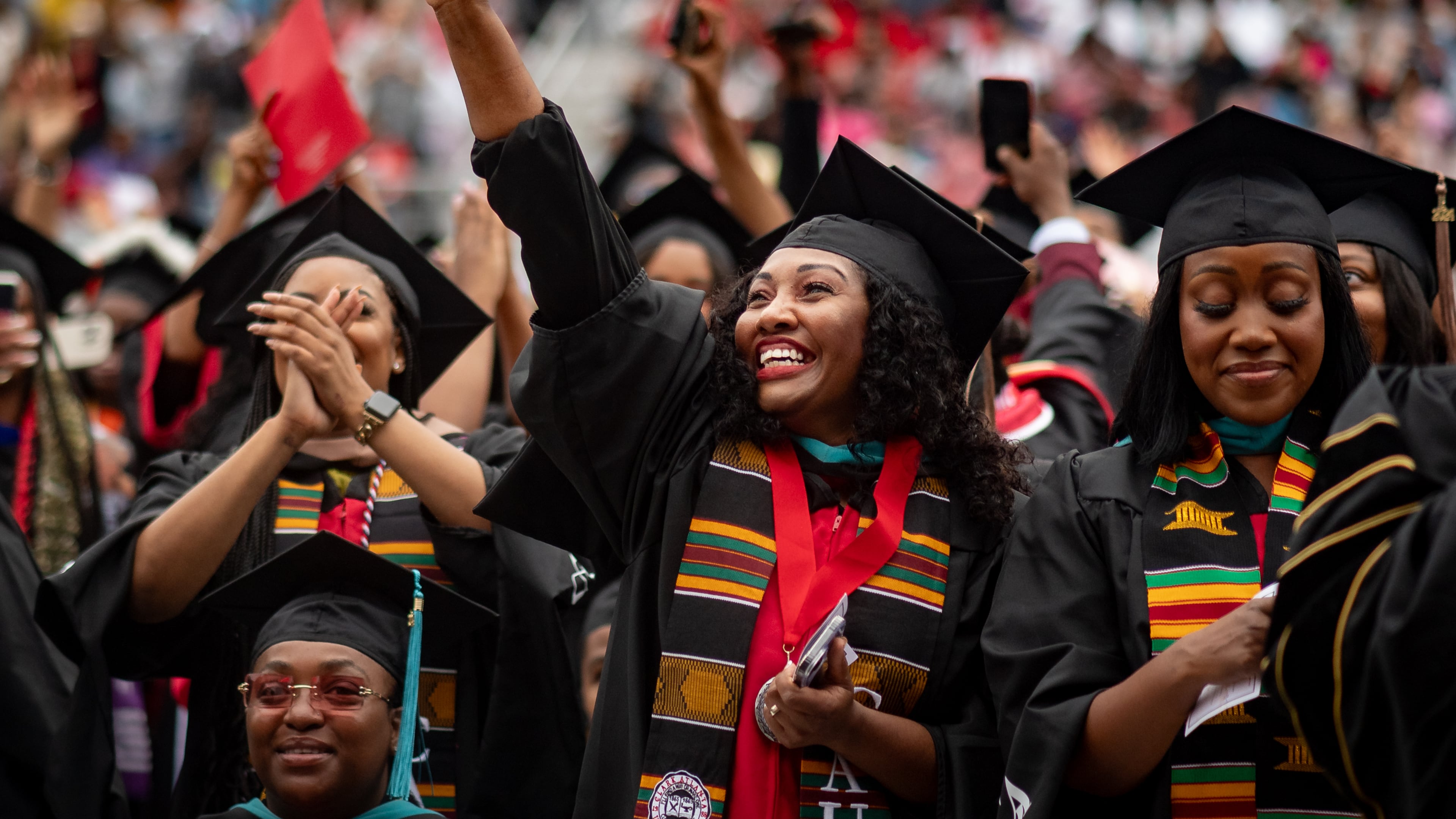A call to education action for the Trump administration

The Atlanta Journal-Constitution is publishing a series of guest columns this week from some educators, education experts and a student asking them what President Donald Trump and his administration should focus on during his term. This is the third of these columns.
As we examine the current landscape of higher education in America, it is essential to confront the unique challenges and opportunities facing historically Black colleges and universities. The Trump administration has the potential to bring about significant changes in education, particularly by strengthening support for HBCUs, which are critical drivers of social mobility, economic empowerment and tangible innovation.
First, it is important to recognize the steps taken during the Trump administration’s first term to benefit HBCUs.
Initiatives such as increased federal funding and enhancements to the HBCU Capital Financing Program mark important advancements in addressing the historical inequities that have long affected these institutions. While these actions are noteworthy, they must serve as a foundation for further efforts to ensure that HBCUs not only endure but flourish in a competitive educational environment.

Economies of scale
HBCUs are not simply centers of learning; they are vital contributors to economic growth and innovation.
A study by the United Negro College Fund and the Thurgood Marshall College Fund reveals that HBCUs generate an impressive $16.5 billion in economic impact each year — the equivalent of a top 50 Fortune 500 in job creation. Beyond their economic contributions, HBCUs have a storied legacy of driving technological advancements and producing tangible innovations that benefit society.
By nurturing a diverse array of talent, HBCUs enhance the nation’s workforce, fostering breakthroughs in various sectors.
To further empower HBCUs, I urge the Trump administration to create a dedicated federal funding program specifically designed to support these institutions. Such a program should focus on infrastructure development, faculty recruitment and retention, curriculum enhancement and student scholarships.
By providing consistent financial assistance, we can help close the funding gap that many HBCUs face, allowing them to deliver enriching educational experiences that develop the leaders and innovators of tomorrow.
Research innovation
Additionally, addressing the lack of support for research and entrepreneurial innovation at HBCUs is crucial. Despite their commitment to academic excellence, many of these institutions struggle to secure necessary funding for research initiatives.
HBCUs have shown exceptional success in producing graduates in science, technology, engineering and mathematics fields, awarding 40% of all bachelor’s degrees to African American students in these disciplines.
This achievement highlights the need for specialized grant programs that encourage advanced research and innovation at these institutions. Investing in research initiatives will empower a new generation of African American scholars and innovators to make impactful contributions to society.
Supporting HBCUs goes beyond social equity; it represents a strategic investment in our shared future. HBCUs play a key role in fostering entrepreneurship and job creation, producing over 50% of African American professionals and public school teachers, as well as 70% of African American dentists and physicians.
By advocating for these institutions, we affirm the intellectual and practical contributions of African Americans, promoting a more just and cohesive society.
Political party and race
In our current political climate, it is also essential to bridge the divide that often disconnects young Black individuals from the Republican Party. We must cultivate environments that invite engagement and understanding rather than division.
HBCUs can serve as vital platforms for constructive dialogue, fostering spaces where diverse political viewpoints are embraced. By promoting education and collaboration, we can empower young, politically astute Black Republicans, Democrats and independents, helping them view their political identity as a viable and valuable choice aligned with their aspirations.
As we confront the complexities of our time, it is crucial for the Trump administration to acknowledge the significant role that HBCUs play in shaping our society.
Building on the groundwork established during the previous term, we have a unique opportunity to enhance support for HBCUs through dedicated funding programs, expanded research initiatives and robust assistance for their development.
Now is the time to advocate for HBCUs, ensuring they receive the comprehensive support necessary for the advancement of our society and future generations.
The trajectory of education in America depends on our commitment to providing opportunities for all. HBCUs serve as a unifying force, bringing together students from various backgrounds and fostering a sense of community and collaboration that transcends racial and socioeconomic divides, ultimately strengthening our nation.
Together, we will continue to elevate HBCUs as pillars of educational excellence and tangible innovation, transforming them into powerful agents of change for a brighter future. Their role in promoting unity and understanding is essential as we work toward a more cohesive America.
George T. French Jr. is the president of Clark Atlanta University, the largest private HBCU in Georgia.


